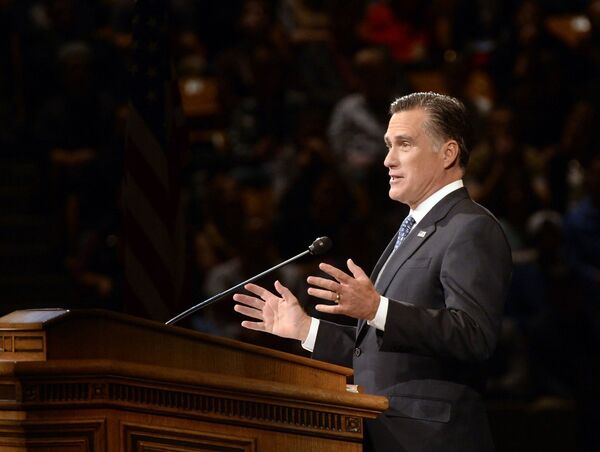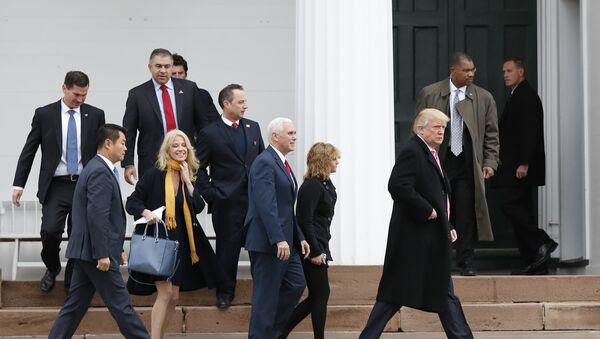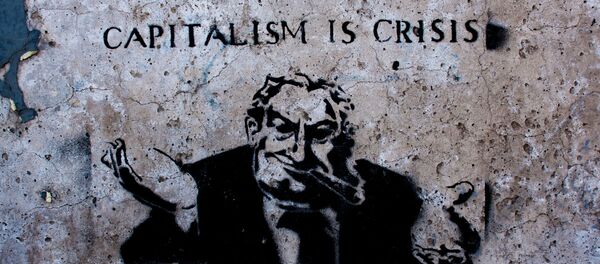Trump's "wish list" includes Representative of Kansas Mike Pompeo as a potential CIA Director, former director of the Defense Intelligence Agency Michael T. Flynn, as a National Security Advisor, Stephen K. Bannon as Chief Strategist, Reince Priebus, the chairman of the Republican National Committee, as a White House Chief of Staff.
While it is still remains unclear who will become the next US Secretary of State, the question arises how the appointees will affect Trump's foreign and domestic policies.
For instance, some US media outlets have recently raised the alarm that the new National Security Advisor, Flynn, is "dangerously pro-Russian" and regards Moscow and Damascus as the US' potential allies in the war against Daesh (ISIS/ISIL).
Is it really possible that following Trump's election Washington and Moscow will finally team up to eliminate terrorists in the Middle East?
"In my opinion, Donald Trump would not have become president if Americans did not see the horrific — and ongoing — bloodbath that followed John McCain's patently criminal visit to Syria, where he openly consorted with known terrorist elements. I believe that was the point when Americans wanted real change from the usual bipartisan racket that ruled Washington for too long. They wanted an outsider and they elected Donald Trump," Mathew Maavak, a doctoral researcher in Risk Foresight at Universiti Teknologi Malaysia (UTM) and regular Op-ed contributor to China's CCTV, told Sputnik.
"So yes, I do see the United States cooperating closely with Russia in stabilizing Syria, but I doubt such cooperation will be extended to China, much less Iran," Maavak underscored.
According to the Malaysian academic a lot now depends on whom Trump picks as his Secretary of State.
"A Dana Rohrabacher or even a Rand Paul would greatly help win allies abroad — as well as trade opportunities. A Mitt Romney, on the other hand, would be an unmitigated disaster," he believes.
The media outlet also noted that Gen. James Mattis is likely to become Trump's pick for the position of a Secretary of Defense in his administration.
Remarkably, both Romney and Mattis are known for their tough stance toward Russia.
Back in 2015 Mattis claimed that Russia's moves "against Ukraine" were "much more severe, more serious" than Washington and the European Union were treating it, according to USNI News report.
For his part, Mitt Romney called Russia America's "number one geopolitical foe" during his 2012 presidential campaign.
However, it didn't prevent his son, Matt, from travelling to Moscow and "seeking Russian investors for his California-based real estate firm" amid his father's campaign, as The New York Times revealed.

It is also still unclear what will be Donald Trump's foreign policy imperatives.
While some analysts assume that the US President-elect will focus on defeating Daesh (ISIS/ISIL) in the Middle East, the others suggest that Washington will concentrate its energy on containing China in the Asia Pacific region.
"I think Trump is smart enough to know that the Middle East is a tinderbox on the verge of self-implosion. It's time to draw down from the region, and concentrate on kick-starting the US shale oil industry — an area in which the US is the undisputed global leader. Spending more than $300 billion per annum on Gulf Arab security will not go down well with Americans who demand real change," Maavak told Sputnik.
According to the researcher, many Middle Eastern regimes "now face a Hobson's choice": they are due to either "face serious blowback from the global jihadi franchise they had co-created, or continue tempting fate with a new US administration that may no longer want to be a co-partner in this global madness."
Maavak believes that Trump will seek trade opportunities in Eurasia, Asia Pacific and even Latin America, instead of aggravating tensions between Washington and its geopolitical competitors in the regions.
"Apart from the MENA and AfPak regions, a Trump administration will naturally be seeking trade opportunities everywhere; perhaps including Russia itself. The US might even build positive bridges in South America instead of seeking vassalage — a destructive policy that it pursued for more than a century," he noted.
"But does Trump hold all the cards in his hands? That's the billion-dollar question at the moment," Maavak emphasized.
The views expressed in this article are solely those of the author and do not necessarily reflect the official position of Sputnik.





